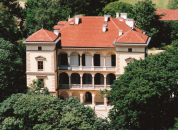
Open course: Does Academic Freedom still matter? Migration, Refugee Crisis and the Role of Academia
Coordinator: Prof. Beata Kowalska (Institute of Sociology)
30 hours (April 9 – May 16 / Monday and Wednesday 6 pm – 8.15 pm)
Conditions to obtain the course credits (5 ECTS): attendance and essay entitled “Is Academic Freedom still a Matter? (5400-7200 characters)
The intensive course organised in cooperation with the Scholars at Risk which protects scholars suffering threats to their lives, liberty and well-being by arranging temporary research and teaching positions at member institutions of Scholars at Risk Network.
April, 9 and 11
The course will be opened by keynote lectures of the eminent Norwegian anthropologist, Professor Unni Wikan, entitled Generous Betrayal: Politics of Culture in the New Europe.
All over Western Europe, many non-Western immigrants are subject to marginalization, discrimination, and increasing segregation. Unni Wikan, based on her research shows how an excessive respect for “their culture” has been part of the problem. Culture has become a new concept of race, and sustaining ethnic identity politics leads to subverting human rights – especially for women and children. Fearful of being considered racist, state agencies have sacrificed freedom and equality in the name of culture.
Then, the Jagiellonian University will host two Scholars at Risks who will lecture on their own research as well as on the threats experienced in home countries.
April, 16 and 18
Dr. Olga S. Hünler (Turkey), University of Bremen
The clinical psychologist specializes in migration, gender, sexuality and the body. She has nearly a decade of experience teaching at the university level and has conducted research in Turkey, the Netherlands and Germany. She held a leadership role in a psychological association that accredited psychologists and promoted women’s and LGBTI rights in Turkey. She is currently hosted as a visiting researcher at a university in Germany where she conducts research on immigrants from Turkey and their construction of masculinity.
April 23 and 25
Nour A. Munawar (Syria), University of Amsterdam
He is currently completing his PhD in the Netherlands. He holds two MAs in archaeology with specializations in heritage management and the Middle East. He conducted extensive comparative research on the preservation of cultural heritage in conflict areas and published and lectured on related topics. In addition, he has worked on four excavation sites throughout Poland and Syria, was a researcher at a cultural heritage agency in the Netherlands and served as a heritage advisor for a museum in Syria.
The course will finish with talks of two scholars who live in Kraków.
May 7 and 9
Khalil Ahmad Arab (Afghanistan), Jagiellonian University
The refugee from Afghanistan, political scientist interested in human rights issues and migration. He focuses his research on brain drain processes in the Middle Eastern countries, which . can be described as the process in which a country loses its most educated and talented citizens to other countries through migration.
May 14 and 16
Wassim Ibrahim (Syria), Academy of Music in Kraków
Syrian composer and a PhD candidate in Music Composition at the Academy of Music in Kraków. The founder of the international “Choir in Contact” in Krakow. He will deliver a lecture on the history of oriental music. At the end we listen to the short concert of Syrian music.
Registration for the course: scholarsatrisk.uj@gmail.com
(name and surname, institute, student number)
Partners: Polish Sociological Association, Kraków,
Villa Decius Association,
Nuremberg House,
Goethe Institute




